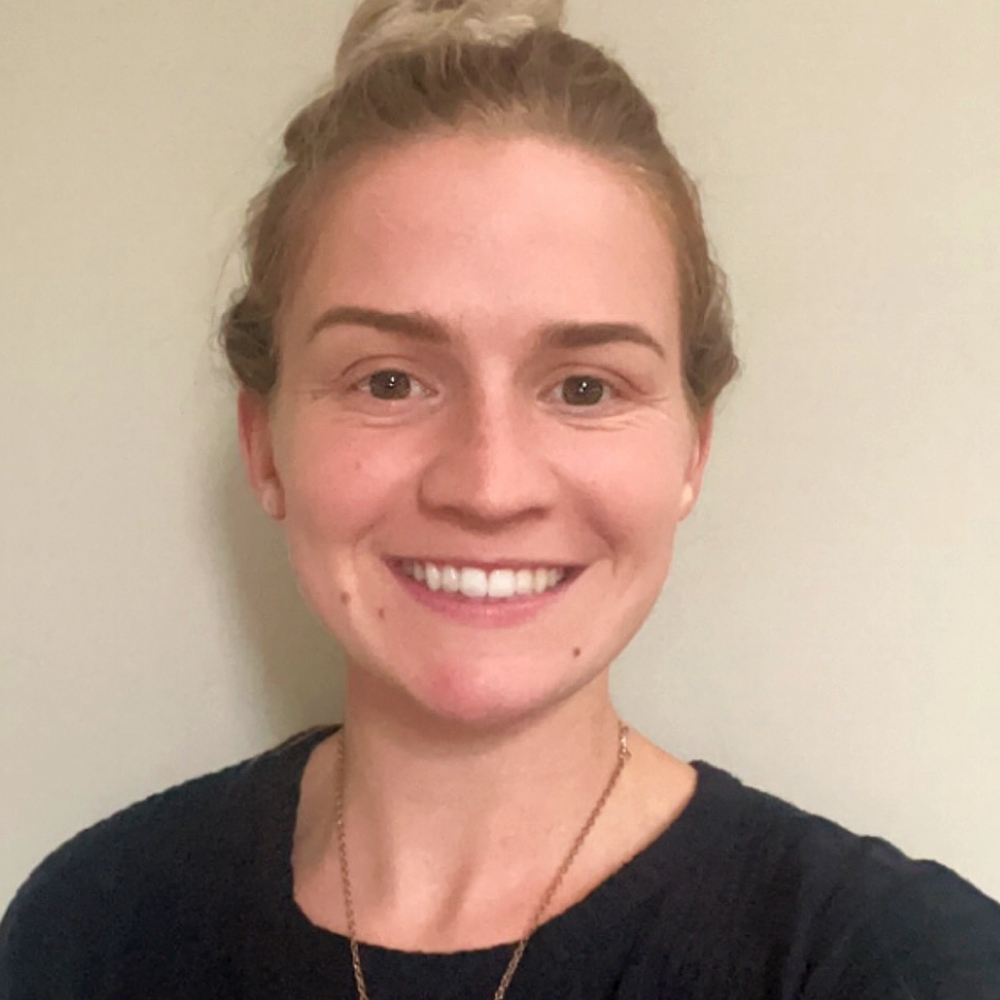Dr Paul Freeman

-
Email
pfreeman@essex.ac.uk -
Telephone
+44 (0) 1206 872179
-
Location
ESA.3.10, Colchester Campus
Profile
Biography
Paul is a Chartered Psychologist and a Fellow of the Higher Education Academy. His research interests focus on cognitive and social factors (including cognitive appraisals, social support, and motivation) underpinning performance under pressure and physical activity behaviour. He possesses excellent methodological and statistical skills, and has conducted laboratory-based experiments, survey designs, single-subject multiple baseline designs, qualitative research (focus groups and interviews), and systematic literature reviews. Paul has received research funding from a range of organisations, including the International Olympic Committee, Active Essex, Essex County Council, and the Economic and Social Research Council. From 2019-21, he was co-lead of the evaluation team working on the Essex Local Delivery Pilot funded by Sport England. In 2022, he led the evaluation of the Prevention and Enablement Model, which tested how the health and social care system in Essex can use physical activity to enable independence, improve population health, and develop inclusive communities. He has also designed and delivered a range of workshops on topics such as Behaviour Change Models and Psychological Skills Training.
Qualifications
-
Ph.D. Sport and Health Sciences University of Exeter,
-
BSc Hons., Exercise and Sport Sciences (1st class) University of Exeter,
Appointments
University of Essex
-
Lecturer>Senior Lecturer, School of Sport, Rehabilitation and Exercise Sciences, University of Essex (1/9/2014 - present)
Research and professional activities
Conferences and presentations
The coach social support-athlete burnout relationship: The mediating role of perceived stress.
British Association of Sport and Exercise Sciences (BASES) Student Conference, 24/4/2023
Nothing about us without us”: The challenges and opportunities of collaborative approaches to data collection and analysis
School of Health and Social Care Staff & Student research Conference, University of Essex, Colchester, United Kingdom, 15/6/2022
Teaching and supervision
Current teaching responsibilities
-
Professional Skills and Development 1 (SE101)
-
Sport and Exercise Psychology (SE104)
-
Professional Skills 2 (SE201)
-
Sport and Performance Psychology (SE207)
-
Research Methods in Sport and Exercise (SE230)
-
Applied Sports Psychology (SE304)
-
Research Project (SE309)
-
Research Project (SE318)
-
Further Research Methods in Sport, Exercise and Health (SE738)
-
Research Project (SE740)
-
Professional practice in sport and exercise psychology (SE741)
-
Psychological Skills and Strategies (SE742)
-
Social psychology in sport and exercise (SE743)
-
Research Project (SE777)
-
Physical Activity, Nutrition and Cardio-Metabolic Disease (SE336)
Current supervision
Previous supervision

Degree subject: Health and Organisational Research
Degree type: Doctor of Philosophy
Awarded date: 17/6/2025

Degree subject: Health Studies
Degree type: Doctor of Philosophy
Awarded date: 9/1/2025

Degree subject: Sport and Exercise Science
Degree type: Master of Science (by Dissertation)
Awarded date: 9/2/2024

Degree subject: Sport and Exercise Psychology
Degree type: Doctor of Philosophy
Awarded date: 17/5/2023

Degree subject: Sport and Exercise Psychology
Degree type: Doctor of Philosophy
Awarded date: 30/8/2022

Degree subject: Sport and Exercise Psychology
Degree type: Doctor of Philosophy
Awarded date: 19/8/2022

Degree subject: Sport and Exercise Psychology
Degree type: Doctor of Philosophy
Awarded date: 15/8/2019

Degree subject: Sport and Exercise Science
Degree type: Doctor of Philosophy
Awarded date: 22/5/2019

Degree subject: Sport and Exercise Psychology
Degree type: Doctor of Philosophy
Awarded date: 12/9/2018
Publications
Publications (1)
Brinkley, AJ., Cusimano, KM., Freeman, P., Southall-Edwards, R. and Gladwell, VF., (2024). ‘It's About Collaboration’: A Whole-Systems Approach to Understanding and Promoting Movement in Suffolk
Journal articles (60)
Chapman, M., Quick, S. and Freeman, P., An in situ exploration of practising football coaches using a new method: TAPSR. International Journal of Sport Coaching
Brinkley, AJ., Cusimano, KM., Freeman, P., Southall-Edwards, R. and Gladwell, VF., (2025). 'It's about collaboration': a whole-systems approach to understanding and promoting movement in Suffolk.. International Journal of Behavioral Nutrition and Physical Activity. 22 (1), 7-
Cusimano, K., Freeman, P. and Moran, J., (2025). Identifying The Psyching-Up Strategies Used in Strength Sports: A Concept Mapping Approach. Journal of Strength and Conditioning Research. 39 (5), 553-561
Winter, M., Freeman, P., Griffin, M., Soundy, A. and Maynard, I., (2025). Experiences of Developing Evidence-Informed Decision-Making Competence in Trainee Sport Psychology Practitioners: Supervisor and Supervisee Perspectives. Sport Psychologist, 1-11
Cusimano, K., Freeman, P., Moran, J. and Yamaguchi, M., (2024). Differences in Approach and Avoidance Motivation Sensitivities Predicting Participation and Performance in Strength Sport. Journal of Strength and Conditioning Research. 38 (1), 180-184
Cusimano, K., Freeman, P., Pawaar, J. and Moran, J., (2024). The Effects of Psyching-Up on Maximal Force Production: A Systematic Review. Strength and Conditioning Journal. 46 (4), 468-484
Pettican, A., Southall-Edwards, R., Reinhardt, GY., Gladwell, V., Freeman, P., Low, W., Copeland, R. and Mansfield, L., (2024). Tackling physical inactivity and inequalities: implementing a whole systems approach to transform community provision for disabled people and people with long-term health conditions.. BMC Public Health. 24 (1), 636-
Brinkley, A., Sandercock, G., Lowry, R. and Freeman, P., (2024). What determines participation in sport for older adults in England: A multilevel analysis of Active Lives data.. PLoS One. 19 (4), e0301790-e0301790
Moran, J., Sandercock, G., Shaw, BS., Freeman, P., Kerr, C. and Shaw, I., (2024). The relationship between modifiable lifestyle behaviours and self-reported health in children and adolescents in the United Kingdom.. PLoS One. 19 (5), e0303575-e0303575
Moran, J., Raga, VC., Jones, B., Tallent, J., Howe, L., Clemente, FM., Arede, J. and Freeman, P., (2024). The identification and development of young talent in Spanish soccer academies: A 10-year multi-study follow-up. International Journal of Sports Science and Coaching. 19 (5), 1984-1994
Grasel Barbosa, D., Freeman, P., Teresinha Corazza, S., Silva Beltrame, T., Santos Silva, DA. and Gomes Felden, EP., (2024). Validity evidence of the Perceived Available Support in Sport Questionnaire (PASS-Q) in young Brazilian athletes. CES Psicología. 17 (2), 17-29
Chapman, M., Quick, SN. and Freeman, P., (2024). An investigation of in situ cognitions of English premier league academy football coaches using stimulated recall and think aloud protocol. Journal of Coaching and Sports Science. 3 (2), 99-112
Hase, A., Korte, IE., Dokter, M., Schiphof-Godart, L. and Freeman, P., (2024). Predicting Pressurised Competitive Trampoline Gymnastics Performance with Challenge and Threat Evaluations. Sport, Exercise, and Performance Psychology. 14 (2), 369-381
Low, W., Freeman, P., Butt, J., Stoker, M. and Maynard, I., (2023). The Role and Creation of Pressure in Training: Perspectives of Athletes and Sport Psychologists. Journal of Applied Sport Psychology. 35 (4), 710-730
Black, C., Mallows, A., Waterworth, S., Freeman, P., Hope, E. and Liew, BXW., (2023). A cross-sectional investigation of back pain beliefs and fear in physiotherapy and sport undergraduate students.. PLoS One. 18 (4), e0284754-e0284754
Winter, M., Freeman, P., Griffin, M., Soundy, A. and Maynard, I., (2023). Exploring the Processes of Evidence-Informed Decision-Making in Applied Sport Psychology. Journal of Applied Sport Psychology. 36 (3), 499-518
Low, W., Butt, J., Freeman, P., Stoker, M. and Maynard, I., (2022). Effective Delivery of Pressure Training: Perspectives of Athletes and Sport Psychologists. Sport Psychologist. 36 (3), 162-170
McLoughlin, E., Arnold, R., Freeman, P., Turner, J., Roberts, G., Fletcher, D., Slavich, G. and Moore, L., (2022). Lifetime Stressor Exposure and Psychophysiological Reactivity and Habituation to Repeated Acute Social Stressors. Journal of Sport & Exercise Psychology. 44 (6), 427-438
Pettican, A., Goodman, B., Bryant, W., Beresford, P., Freeman, P., Gladwell, V., Kilbride, C. and Speed, E., (2022). Doing together: reflections on facilitating the co-production of participatory action research with marginalised populations. Qualitative Research in Sport, Exercise and Health. 15 (2), 202-219
Liew, BXW., Syrett, J., Freeman, P. and Evans, DW., (2022). Pain-related fear of movement dynamics in individuals with and without low back pain participating in weightlifting and/or powerlifting training.. PLoS One. 17 (10), e0276983-e0276983
Low, W., Freeman, P., Sandercock, G., Winter, M., Butt, J. and Maynard, I., (2021). Pressure Training for Performance Domains: A Meta-Analysis. Sport, Exercise, and Performance Psychology. 0 (1), 149-163
Behnke, M., Hase, A., Kaczmarek, LD. and Freeman, P., (2021). Blunted cardiovascular reactivity may serve as an index of psychological task disengagement in the motivated performance situations.. Scientific Reports. 11 (1), 18083-
Fu, D., Hase, A., Goolamallee, M., Godwin, G. and Freeman, P., (2020). The Effects of Support (In)Adequacy on Self-Confidence and Performance: Two Experimental Studies. Sport, Exercise, and Performance Psychology. 10 (1), 15-26
Hase, A., aan het Rot, M., de Miranda Azevedo, R. and Freeman, P., (2020). Threat-related motivational disengagement: Integrating blunted cardiovascular reactivity to stress into the biopsychosocial model of challenge and threat. Anxiety, Stress, & Coping. 33 (4), 355-369
Hase, A., O'Brien, J., Moore, L. and Freeman, P., (2019). The relationship between challenge and threat states and performance: A systematic review. Sport, Exercise, and Performance Psychology. 8 (2), 123-144
Hase, A., Hood, J., Moore, LJ. and Freeman, P., (2019). The influence of self-talk on challenge and threat states and performance. Psychology of Sport and Exercise. 45, 101550-101550
Moore, LJ., Freeman, P., Hase, A., Solomon-Moore, E. and Arnold, R., (2019). How Consistent Are Challenge and Threat Evaluations? A Generalizability Analysis. Frontiers in Psychology. 10 (JULY), 1778-
Hase, A., Gorrie-Stone, T. and Freeman, P., (2019). Tyrosine intake and cardiovascular responses in a motivated performance situation. Sport, Exercise, and Performance Psychology. 8 (1), 80-92
Moore, LJ., Young, T., Freeman, P. and Sarkar, M., (2018). Adverse life events, cardiovascular responses, and sports performance under pressure. Scandinavian Journal of Medicine and Science in Sports. 28 (1), 340-347
Flowers, EP., Freeman, P. and Gladwell, VF., (2018). Enhancing the acute psychological benefits of green exercise: An investigation of expectancy effects. Psychology of Sport and Exercise. 39, 213-221
Moll, T., Rees, T. and Freeman, P., (2017). Enacted support and golf-putting performance: The role of support type and support visibility. Psychology of Sport and Exercise. 30, 30-37
Sammy, N., Anstiss, PA., Moore, LJ., Freeman, P., Wilson, MR. and Vine, SJ., (2017). The Effects of Arousal Reappraisal on Stress Responses, Performance and Attention. Anxiety, Stress and Coping. 30 (6), 619-629
Coffee, P., Freeman, P. and Allen, MS., (2017). The TASS-Q: The Team-referent Availability of Social Support Questionnaire. Psychology of Sport and Exercise. 33, 55-65
Flowers, EP., Freeman, P. and Gladwell, VF., (2017). The Development of Three Questionnaires to Assess Beliefs about Green Exercise. International Journal of Environmental Research and Public Health. 14 (10), 1172-1172
Flowers, EP., Freeman, P. and Gladwell, V., (2016). A cross-sectional study examining predictors of visit frequency to local green space and the impact this has on physical activity levels. BMC Public Health. 16 (1), 420-
Moore, LJ., Vine, SJ., Wilson, MR. and Freeman, P., (2015). Reappraising Threat: How to Optimize Performance Under Pressure. Journal of Sport and Exercise Psychology. 37 (3), 339-343
Coussens, AH., Rees, T. and Freeman, P., (2015). Applying generalizability theory to examine the antecedents of perceived coach support. Journal of sport & exercise psychology. 37 (1), 51-62
Soundy, A., Freeman, P., Stubbs, B., Probst, M., Roskell, C. and Vancampfort, D., (2015). The Psychosocial Consequences of Sports Participation for Individuals with Severe Mental Illness: A Metasynthesis Review. Advances in Psychiatry. 2015, 1-8
Freeman, P., Coffee, P., Moll, T., Rees, T. and Sammy, N., (2014). The ARSQ: The Athletes' Received Support Questionnaire. Journal of Sport and Exercise Psychology. 36 (2), 189-202
Hamlyn-Williams, CC., Freeman, P. and Parfitt, G., (2014). Acute affective responses to prescribed and self-selected exercise sessions in adolescent girls: an observational study. BMC Sports Science, Medicine and Rehabilitation. 6 (1), creators-Freeman=3APaul=3A=3A
Moore, LJ., Vine, SJ., Wilson, MR. and Freeman, P., (2014). Examining the antecedents of challenge and threat states: The influence of perceived required effort and support availability. International Journal of Psychophysiology. 93 (2), 267-273
Soundy, A., Stubbs, B., Freeman, P., Coffee, P. and Roskell, C., (2014). Factors influencing patients' hope in stroke and spinal cord injury: A narrative review. International Journal of Therapy and Rehabilitation. 21 (5), 210-218
Soundy, A., Freeman, P., Stubbs, B., Probst, M., Coffee, P. and Vancampfort, D., (2014). The transcending benefits of physical activity for individuals with schizophrenia: A systematic review and meta-ethnography. Psychiatry Research. 220 (1-2), 11-19
Soundy, A., Freeman, P., Stubbs, B., Probst, M. and Vancampfort, D., (2014). The value of social support to encourage people with schizophrenia to engage in physical activity: an international insight from specialist mental health physiotherapists. Journal of Mental Health. 23 (5), 256-260
Hamlyn-Williams, CC., Freeman, P. and Parfitt, G., (2014). Acute affective responses to prescribed and self-selected exercise sessions in adolescent girls: an observational study. BMC Sports Science, Medicine and Rehabilitation. 6 (1), 35-
Vine, SJ., Freeman, P., Moore, LJ., Chandra-Ramanan, R. and Wilson, MR., (2013). Evaluating stress as a challenge is associated with superior attentional control and motor skill performance: Testing the predictions of the biopsychosocial model of challenge and threat.. Journal of Experimental Psychology: Applied. 19 (3), 185-194
Moore, LJ., Vine, SJ., Freeman, P. and Wilson, MR., (2013). Quiet eye training promotes challenge appraisals and aids performance under elevated anxiety. International Journal of Sport and Exercise Psychology. 11 (2), 169-183
Moore, LJ., Wilson, MR., Vine, SJ., Coussens, AH. and Freeman, P., (2013). Champ or Chump?: Challenge and Threat States During Pressurized Competition. Journal of Sport and Exercise Psychology. 35 (6), 551-562
Moore, LJ., Vine, SJ., Wilson, MR. and Freeman, P., (2012). The effect of challenge and threat states on performance: An examination of potential mechanisms. Psychophysiology. 49 (10), 1417-1425
Rees, T., Freeman, P., Bell, S. and Bunney, R., (2012). Three Generalizability Studies of the Components of Perceived Coach Support. Journal of Sport and Exercise Psychology. 34 (2), 238-251
Freeman, P., Coffee, P. and Rees, T., (2011). The PASS-Q: The Perceived Available Support in Sport Questionnaire. Journal of Sport and Exercise Psychology. 33 (1), 54-74
McGrath, JS., Moore, L., Wilson, MR., Freeman, P. and Vine, S., (2011). ‘CHALLENGE’ AND ‘THREAT’ STATES IN SURGERY: IMPLICATIONS FOR SURGICAL PERFORMANCE AND TRAINING. BJU International. 108 (6), 795-796
Rees, T. and Freeman, P., (2010). Social Support and Performance in a Golf-Putting Experiment. The Sport Psychologist. 24 (3), 333-348
Freeman, P. and Rees, T., (2010). Perceived social support from team‐mates: Direct and stress‐buffering effects on self‐confidence. European Journal of Sport Science. 10 (1), 59-67
Freeman, P. and Rees, T., (2009). How Does Perceived Support Lead to Better Performance? An Examination of Potential Mechanisms. Journal of Applied Sport Psychology. 21 (4), 429-441
Freeman, P., Rees, T. and Hardy, L., (2009). An Intervention to Increase Social Support and Improve Performance. Journal of Applied Sport Psychology. 21 (2), 186-200
Rees, T. and Freeman, P., (2009). Social Support Moderates the Relationship Between Stressors and Task Performance Through Self-Efficacy. Journal of Social and Clinical Psychology. 28 (2), 244-263
Freeman, P. and Rees, T., (2008). The effects of perceived and received support on objective performance outcome. European Journal of Sport Science. 8 (6), 359-368
Rees, T. and Freeman, P., (2007). The effects of perceived and received support on self-confidence. Journal of Sports Sciences. 25 (9), 1057-1065
Rees, T., Hardy, L. and Freeman, P., (2007). Stressors, social support, and effects upon performance in golf. Journal of Sports Sciences. 25 (1), 33-42
Book chapters (4)
Freeman, P., (2021). Social support. In: Stress, Well-Being, and Performance in Sport. Editors: Arnold, R. and Fletcher, D., . Routledge. 240- 258. 9780429295874
Wood, N., Parker, J., Freeman, P., Black, M. and Moore, L., (2018). The relationship between challenge and threat states and anaerobic power, core affect, perceived exertion, and self-focused attention during a competitive sprint cycling task. In: Progress in Brain Research. Elsevier. 1- 17. 9780444641878
(2013). How important are the values of significant others? The influence of physical education teachers’ values and types of school on youth sport values. In: Values in Youth Sport and Physical Education. Routledge. 198- 210
Rees, T. and Freeman, P., (2011). Coping in sport through social support. In: Coping and Emotion in Sport Second Edition. 102- 117
Conferences (2)
Goodman, B., Pettican, A., Speed, E., Gladwell, V. and Freeman, P., (2022). Learning from the Voices for Inclusive Activity (VIA) project: using digital methods to facilitate inclusive and accessible research
Clements, K., Mills, J. and Freeman, P., (2020). Development of the Youth Coaching Effectiveness Scale
Thesis dissertation (1)
Winter, ME., Freeman, P., Griffin, M., Soundy, A. and Maynard, I., (2024). Exploring the processes of evidence-informed decision-making in applied sport psychology
Grants and funding
2025
Evaluation PHAB Sport for Confidence
Sport for Confidence
2024
EFDC PHAB Evaluation
Epping Forest District Council
2023
Going along together: Piloting an innovative participatory research methodology with disabled people and people living with enduring health conditions
UOE Participatory Research Fund
Sport for Confidence PhD Studentship
Sport for Confidence
2022
Evaluation: Essex County Council Local Delivery Pilot 1 year extension
Active Essex
Evaluation of North East Essex Alliance Neighbourhood & Live Well Domain Programmes
North East Essex Clinical Commissioning Group
2021
Together We Grow: The impact of gardening on physical, psychological and social outcomes
University of Essex (ESRC IAA)
2019
Well-being of staff and compressed working hours
Century office Equipment (Essex) Ltd
Additional work in the action research workload in stage 2 (evaluation) and stage 3 analysis and report writing.
Essex County Council
Evaluation_Local Delivery Pilot for Sport England
Sport England
Evaluation: Local Delivery Pilot for Sport England
Sport England
2018
Improving workplace wellbeing by engaging with nature
University of Essex
Attitudes towards higher education: An evaluation of the Jump Higher project
Make it Happen
Essex Local Delivery Pilot (LDP) - A Tender specification for the second phase of the evaluation of the initial 'Action Research Test and Learn' programme
Essex County Council
Evaluating physical activity behaviour change in Essex: Part of the local delivery pilot
Essex County Council
Evaluating physical activity behaviour change in Essex: Part of the local delivery pilot
Essex County Council
2016
Coach, Athlete, and Relational Influences on Development Athletes' Attitudes, Intentions and Willingness to Dope
International Olympic Committee






